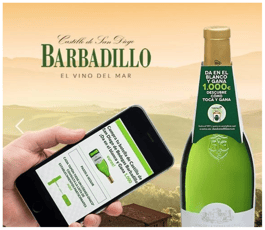nlopchantamang.com
Noise Pollution: Opportunities to Fight the Next Public Health Crisis
Aja Frost @ajavuu
Source: Environmental Noise in Europe 2020 Report
The Signal: Last year, The New Yorker’s David Owen suggested that noise pollution is “the next big public health crisis.” According to a March report from the European Environment Agency, the number of Europeans in urban areas who are exposed to excessive noise levels will rise significantly between 2017 and 2030:
- Road (daytime noise): +7.8% (from 78.2m people to 84.3m people)
- Road (nighttime noise): +10.3% (from 55.1m to 60.7m)
- Rail (daytime noise): +11.8% (from 10.3m to 11.6m)
- Rail (nighttime noise): +21.7% (from 7.8m to 9.5m)
Similar jumps are expected outside urban areas, too.
Big Picture: The health effects of noise pollution are staggering: It has been shown to shorten lives and harm people’s health. A 2012 report by the World Health Organization conservatively estimated that at least 1m healthy life years are lost annually as a result of traffic-related noise in Western Europe alone.
At the time the report was published, Europeans lost:
- 61k disability-adjusted life years for ischemic heart disease
- 45k for cognitive impairment of children
- 903k for sleep disturbance
- 22k for tinnitus
- 654k for annoyance.
Current data suggests that 20% of Europe’s population (100m+ people) is exposed to harmful long-term noise levels. At least 22m Europeans suffer chronic high annoyance as a result of noise pollution. A further 6.5m suffer serious and chronic sleep problems.
Noise pollution decreased dramatically when the world came to a standstill during lockdown. It is estimated that environmental sound pollution dropped by as much as 90% in some areas of Paris, the world’s 3rd-noisiest city. This imposed moment of silence will highlight the enormity of the noise pollution crisis and create opportunities for companies that make the world a quieter place.
Opportunity: According to Keywords Everywhere, search interest for noise-canceling products (described by VentureBeat’s Jeremy Horwitz as a “work- or school-from-home secret weapon”) is high:
- “Noise-canceling headphones”: 301k searches/month
- “Noise-canceling earbuds”: 74k
- “Sensory deprivation tank”: 74k
- “Noise-canceling earbuds sleep”: 6.6k
- “Acoustic curtains”: 5.4k
- “Noise-canceling headphones for kids”: 2k
A number of tech startups that focus on noise-absorbing technology are raising money and getting attention. Irish startup Restored Hearing was awarded a ~$2.7m grant in October to commercialize its sound-absorbing device, SoundBounce, across the construction, automotive, power generation, and aerospace industries.
In June, Dutch startup DeNoize won a Blue Tulip Award for its groundbreaking noise cancellation innovation. The company provides smart window technology that “transforms any glass facade into a noise-cancelling system.” The company claims that its technology can reduce outdoor noise pollution by up to 90% and amplify the sounds of nature.
Innovations are not limited to hardware. Demand for Krisp’s voice-isolating algorithm surged during the pandemic along with the boom in remote work. The company, which raised $5m in August, developed noise-suppression technology that helps communication apps like Zoom silence ambient sounds and isolate voices.
Other innovations to consider: Soundproofing curtains, low-resistance tires, and acoustic solutions for vehicle cabins. Or try software: Noise-monitoring apps let users measure noise, but you can add value with special features (like sound therapy or monthly noise trackers).

Leave a Comment